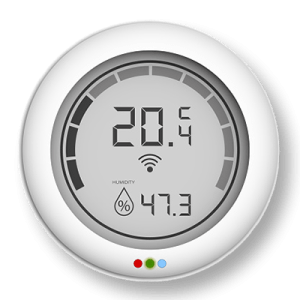How can we develop a reasonable hypothesis?
Use criteria to develop reasonable hypotheses about actions we can take to address climate change.

Overview
The ability to develop a reasonable hypothesis is an important skill. In this activity, students use criteria and a thinking strategy to identify and develop reasonable hypotheses related to actions that they could take to address climate change. These thinking tools can be used by students to develop a reasonable hypothesis in multiple contexts. While this activity uses examples related to climate change, other examples could be used to help nurture the competency of questioning and predicting.
Instructions
What you'll need
- “Identifying reasonable hypotheses” worksheet, one per student
- “Rating hypotheses related to climate change actions” worksheet, one per student
- “Assessing my ability to develop a reasonable hypothesis” rubric
- Organize your students into groups and provide each student with a copy of the “Identifying reasonable hypotheses” worksheet. Invite groups to make an initial decision: Which hypothesis is the most reasonable? Why?
- Encourage groups to share their decisions and rationale with the class. As groups share, use their thinking to co-develop, or present, the following criteria for a reasonable hypothesis:
- Formatted appropriately: the hypothesis is phrased as an if/then statement; clearly written
- Testable and specific the hypothesis contains specific dependent and independent variables; can be tested using available tools and resources
- Invite groups to revisit their initial decisions and now apply the criteria. Ask groups: Would they change anything about their initial ranking and/or rationale? Would they keep anything the same? Why or why not?
- Explain to your students that they are now going to practice using the criteria to identify and develop a reasonable hypothesis for a new topic. Provide each student with a copy of the “Rating hypotheses related to climate change actions” worksheet. This worksheet can be modified to be used by students in other contexts as well.
- Instruct student groups to practice using the criteria to rate how reasonable each hypothesis is. Prompt groups to reflect, if needed, on how the hypothesis can be improved to better meet the criteria. Students can then use the suggestions to create a revised hypothesis.
- Invite each student to apply the criteria by developing their own hypothesis related to an action of their choosing that they can take to address climate change. Have students share their hypothesis with their groups and support one another to revise their hypotheses, as needed, to better meet the criteria. Encourage students to share their final hypotheses with the class.
- Conclude the activity by inviting your students to discuss where else these thinking tools, especially the criteria, might be useful.
Modify or extend this activity
Modifications
- Provide options for students to work on the activity sheets either independently or in pairs.
- Provide a scribe and/or extra time with respect to the activity sheets for those students who need it.
Extension
Practice identifying and developing reasonable hypotheses related to other topics in either science or other subjects.
Curriculum Fit
Grade 7, 8 Science
Content
- Evidence of climate change over geologic time and recent impacts of humans (Grade 7)
Curricular competencies
Questioning and predicting
- Formulate alternative “if… then…” hypothesis based on their questions
Applying and innovating
- Transfer and apply learning to new situations
Assessments
Throughout the activity consider how well students:
- Contribute to respectful group discussion
- Use the criteria for a reasonable hypothesis
Guide students in using the “Assessing my ability to develop a reasonable hypothesis” rubric during the activity.







